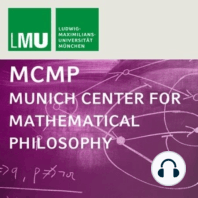74 min listen
The Univalence Axiom
ratings:
Length:
56 minutes
Released:
Apr 18, 2019
Format:
Podcast episode
Description
Steve Awodey (CMU) gives a talk at the MCMP Colloquium (16 July, 2014) titled "The Univalence Axiom". Abstract: In homotopy type theory, the Univalence Axiom is a new principle of reasoning which implies that isomorphic structures can be identified. I will explain this axiom and consider its background and consequences, both mathematical and philosophical.
Released:
Apr 18, 2019
Format:
Podcast episode
Titles in the series (22)
A useful method for obtaining alternative formulations of the analytical hierarchy: Colloquium Mathematical Philosophy by MCMP – Philosophy of Mathematics
